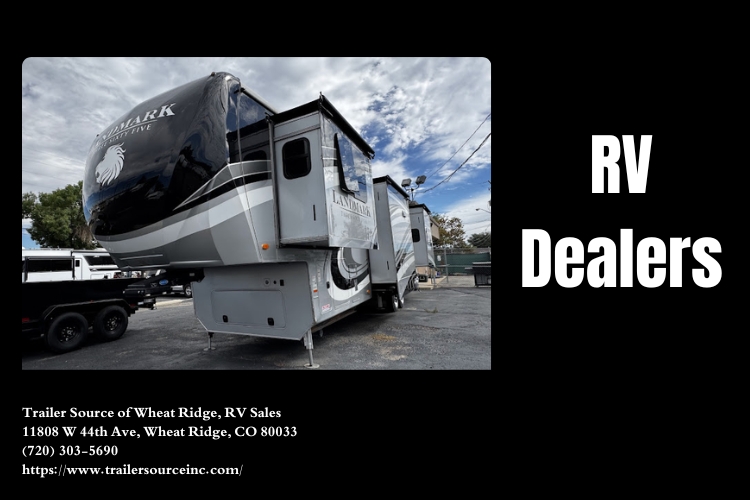Introduction
As the leaves begin to fall and the temperatures drop, it’s time for RV owners to think about winterizing their vehicles. Winter can be harsh on an RV, leading to potential damage if not properly prepared. By following expert advice from Wheat Ridge service professionals, you can ensure that your RV remains in peak condition until spring rolls around again. This comprehensive guide will walk you through everything you need to know about preparing your RV for winter, including expert tips, essential maintenance tasks, and how to select a reliable RV service center.
How to Prepare Your RV for Winter: Tips from Wheat Ridge Service Professionals
When it comes to preparing your RV for winter, there are numerous steps you should take to safeguard its integrity. Here’s what the experts recommend:
Understanding the Importance of Winterization
Winterization is not just a buzzword; it’s crucial for maintaining your RV's longevity. By taking proactive measures during the cold months, you’re preventing issues such as leaks, plumbing freezes, and battery damage. Let’s explore why it's so important.
Preventing Plumbing Issues
Water left in the pipes can freeze and expand, causing cracks or complete burst pipes. This can lead to costly repairs later on. Proper winterization involves draining water systems and adding non-toxic antifreeze.
Protecting Electrical Systems
Cold weather can cause batteries to drain faster than usual. If you're not careful, a dead battery will be the last thing you want when you're ready to hit the road again in spring.
Gather Your Winter Preparation Supplies
Before diving into the preparation process, gather all necessary supplies. Here’s a quick checklist:
Non-toxic antifreeze Water heater bypass kit Drain pans Cleaning supplies Battery maintainer Tire coversHaving these items handy will simplify your winterization process.
Step-by-Step Winter Preparation Process
1. Clean Your RV Thoroughly
Start by giving your RV a good wash—clean both the exterior and interior.
- Exterior: Remove any dirt or grime that could lead to rust or corrosion. Interior: Clear out food items and clean surfaces to prevent pests over winter.
2. Drain All Water Systems
This crucial step prevents freezing and bursting pipes.
- Locate all water tanks. Open all faucets and drain valves. Don’t forget about toilets—flush them until empty.
3. Add Antifreeze
After draining, it’s time to add non-toxic antifreeze:
- Use a water pump converter kit. Pump antifreeze through all water lines until it appears at each faucet.
4. Protect Your Battery
Batteries don’t fare well in extreme cold:
- Disconnect your battery terminals. Store them in a cool but dry place. Use a battery maintainer if possible.
Maintenance Tasks Before Hibernation
https://www.trailersourceinc.com/ RV service center1. Inspect Tires and Undercarriage
Tires need attention too! Check for wear and tear before storage:

- Ensure proper inflation—a flat tire during winter storage is no fun. Look at the undercarriage for signs of rust or damage.
2. Check Roof Seals and Windows
Inspect seals around windows and roofs for leaks:
- Use specialized sealant if necessary.
Choosing an RV Service Center: What You Should Know
If you're unsure about tackling these tasks alone or lack time, consider visiting an experienced RV service center like Wheat Ridge Services.
Why Choose Professional Help?
Professionals have expertise that guarantees quality work:
They identify issues you might overlook. Save time with efficient services. They offer warranties on their work.The Importance of Regular Maintenance Checks During Winter Storage
Even though your RV is parked away for winter doesn’t mean it should be forgotten entirely!

Monthly Inspections Recommended by Experts
Regular checks help catch issues early:
- Look for moisture build-up inside. Check tire pressure monthly.
Preparing for Spring: What Comes Next?
Once spring arrives, you'll want to de-winterize your vehicle efficiently:
Flush out antifreeze from plumbing systems. Recharge batteries before use. Inspect tires again before hitting the road.Frequently Asked Questions (FAQs)
Q1: How often should I winterize my RV?
A1: It's essential to winterize every year if you're storing it in cold temperatures.
Q2: Can I use regular antifreeze?
A2: No! Always use non-toxic antifreeze specifically designed for RVs as regular antifreeze is toxic.
Q3: Do I need professional help?
A3: While many tasks can be DIY projects, professional help ensures thorough preparation without overlooking details.
Q4: What happens if I forget to winterize my RV?
A4: Failing to do so could lead to severe plumbing issues or electrical problems come springtime.
Q5: Is indoor storage better than outdoor during winter?
A5: Yes! Indoor storage protects against elements like snow or ice buildup which could cause damage over time.
Q6: How long does it take to prepare an RV for winter?
A6: Expect anywhere from 4–8 hours depending on how thorough you wish to be!
Conclusion
Preparing your RV for winter is no small task; however, with guidance from Wheat Ridge service professionals combined with proactive measures, you'll protect this significant investment effectively! Remember that proper maintenance now means fewer headaches come spring when you're eager to hit the road again!
Incorporate these strategies into your routine each year—your future self will thank you! Safe travels await once you've tackled this essential seasonal task—so grab those supplies today!

Contact us:
Trailer Source of Wheat Ridge, RV Sales
11808 W 44th Ave, Wheat Ridge, CO 80033
Phone: (720) 303-5690
Website: https://www.trailersourceinc.com/